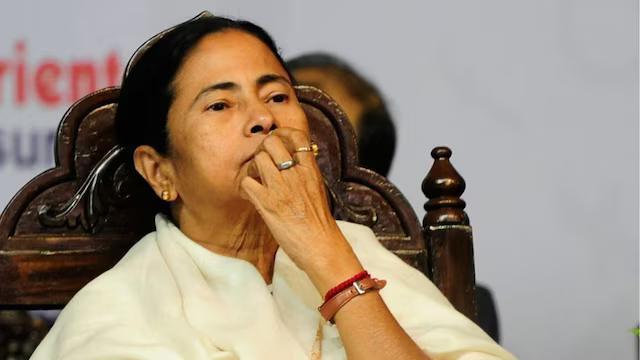
Waqf Act Won’t Be Implemented in WB: Mamata Amid Violent Protests
Tensions have been running high in West Bengal as protests against the Waqf Amendment Act have turned violent, leaving 15 police personnel injured and over 100 people arrested. Amidst the chaos, Chief Minister Mamata Banerjee has reiterated her stance that the Act will not be implemented in the state. In a statement that has sparked both relief and concern, Banerjee emphasized the importance of maintaining peace and avoiding violent protests.
The Waqf Amendment Act, passed by the Centre in 2013, aimed to reform the Waqf Board, which manages Islamic religious properties in India. The Act had been a contentious issue, with many Muslim organizations and political parties opposing it, citing concerns that it would lead to the erosion of Muslim rights and the takeover of Waqf properties by the government.
Protests against the Act began gaining momentum in West Bengal, with demonstrations and rallies being held across the state. However, the situation took a violent turn when police attempted to disperse protesters in the city of Kolkata, leading to clashes and the arrest of numerous individuals.
Banerjee’s statement, which came in response to the growing unrest, has sparked a mixed reaction. While some have praised the Chief Minister for standing firm against the Act, others have criticized her for not taking a stronger stance against the protests.
“We will not implement the Waqf Amendment Act in West Bengal,” Banerjee said in a statement. “Every human life is precious, do not incite riots for the sake of politics. We want to maintain peace and harmony in the state.”
Banerjee’s statement has been seen as a bid to placate both sides of the debate. By reiterating her opposition to the Act, she has attempted to assuage the concerns of Muslim organizations and protesters who fear the Act’s implications. At the same time, her emphasis on maintaining peace and harmony has been seen as a veiled warning to protesters to refrain from violent actions.
The protests against the Waqf Amendment Act have been led by various Muslim organizations, including the Jamiat Ulama-i-Hind and the All India Muslim Personal Law Board. These organizations have been vocal in their opposition to the Act, citing concerns that it would lead to the erosion of Muslim rights and the takeover of Waqf properties by the government.
The protests have also been supported by several political parties, including the Left Front and the Congress. These parties have accused the Centre of trying to undermine Muslim rights and have called for the Act to be repealed.
The Centre, however, has maintained that the Act is necessary to reform the Waqf Board and ensure that its assets are used for the benefit of the Muslim community. The government has argued that the Act will help to increase transparency and accountability in the management of Waqf properties and ensure that the funds generated from these properties are used for the welfare of the Muslim community.
The controversy surrounding the Waqf Amendment Act is just the latest example of the complex and often contentious issues surrounding the management of religious properties in India. The Act has sparked heated debates about the role of the government in managing religious properties, the rights of Muslim organizations, and the implications of the Act for the Muslim community.
In conclusion, the protests against the Waqf Amendment Act have highlighted the deep-seated concerns and divisions within Indian society. While some have welcomed Banerjee’s statement and the Centre’s decision to implement the Act, others have criticized the government for its handling of the issue.
As the debate continues to rage on, it is clear that the Waqf Amendment Act will remain a contentious issue for the foreseeable future. It remains to be seen how the situation will unfold, but one thing is certain – the issue has exposed deep-seated divisions within Indian society and has highlighted the need for greater dialogue and understanding between different communities.





